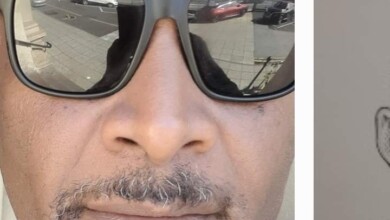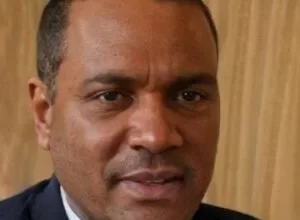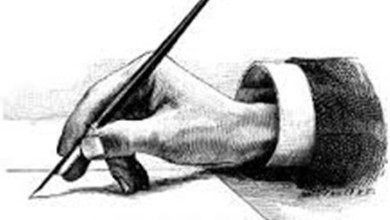The Rizeigat: Between the lie of incitement and anvil of a wounded nation
Dr. Al-Waleed Adam Madibou

“Civil peace cannot be established unless local patterns of managing tribal balances are restored, and unless the State stops imposing its military formulas on societies created not for war but for coexistence.”
— (Darfur, the Last Settlement)
Discordant voices are rising on the horizon, promoting malicious allegations that the Rizeigat have accepted the role of conspirators against the nation and have joined the ranks of chaos, sometimes in the name of tribalism, and other times under the pretext of an alliance with the Rapid Support Forces (RSF). This particular narrative, promoted by a number of mouthpieces affiliated with the former regime, doesn’t seek to uncover the truth; rather, it aims to demonize everyone who fails to submit to their old security logic or comply with their crumbling symbolic authority.
Indeed, the plot may thicken, and rumors may be used to distort the image of the Rizeigat, claiming that the Nazir of the Rizeigat, Mr. Mahmoud Musa Ibrahim Musa Madibou, has fled. This rumor is only befitting of those who are ignorant of history or who deliberately aim to distort it. Fleeing isn’t the nature of those who have firmly established themselves in the land and inherited the responsibility passed down through generations. Rather, it is the nature of leaders who sprout without roots or origin in the conscience of the people.
Yes, a person may err, uttering statements that aren’t permissible or doing what isn’t permissible under the pressure of emotions and the allure of sentiment. However, once they regain their psychological and mental balance, they must acknowledge the truth and the right path. “And when Moses’ anger subsided, he took up the tablets; and in their inscription was guidance and mercy for those who fear their Lord.” Almighty God has spoken truly.
The Rizeigat Nazir, with its long history, has never been a tool in the hands of tyranny. Rather, it has always resisted attempts to hijack and exploit it for elimination projects, beginning with the declaration of “Jihad” against the southerners and ending with the genocidal massacres in Darfur. Al Madibou refused to engage in such absurd wars and stood, to the best of their ability, as a barrier against the efforts to dismantle the social fabric. However, confronting a State empowered by its media and Military Intelligence Service was no easy task. Southerners and Darfurians, who have experienced the realities on the ground, are fully aware of this structural -not moral- deficiency.
The passing of Nazir, Saeed Mahmoud Musa Madibou (1931 – 2016), may God have mercy on his soul, left a vacuum exploited by those seeking to reengineer the tribal map according to the agenda of the elite Center, which viewed the people of Darfur as nothing more than fuel for its wars and a human reservoir for its repressive apparatus. However, when the most recent war broke out, the Arab component in Darfur and Kordofan had no choice but to defend itself, having become a glaring target, not only for the Rapid Support Forces, but also for the countryside, identity, and belonging.
Nevertheless, the response to injustice must not devolve into hatred, nor should it be reduced to narratives of revenge. What we are experiencing is not limited to a tribal dispute or a struggle between factions, but rather a crisis of a State whose structure has long collapsed, whose authority has been torn apart, and whose decision-making power has been usurped by the security elites who have assumed the role of “victim” while they themselves have created the current catastrophe. The solution lies -not- in accusing certain components of treason, but in restoring dignity to the marginalized, and in a comprehensive national reconciliation that acknowledges the pain and establishes the foundations of justice that excludes no one.
The nation today doesn’t need more wounds, rather, sincere healing swathe that distinguishes between the perpetrator and the victim, between those who fanned the flames and those who strived to extinguish them, even if they possess only their voice. The Rizeigat, like other components of Sudan, cannot be isolated or accused of treason. Rather, they ought to be included in shaping the new national project. Otherwise, we will continue to revolve in a vicious circle, reproducing the same destruction under different names, until the country is lost between the lust for power and the inability to achieve reconciliation.
The Rizeigat, like the rest of Sudan’s elite, aren’t enemies of this nation, but rather an integral part of its fabric. If we wish to reclaim Sudan, we ought to pay careful attention to our differences and heed the voice of wisdom, not the rhetoric of hatred. However, if some insist on obscuring our vision and merely playing the victim, the ship of the nation will sink, and it will then be difficult to find any party capable of saving us from drowning.
In conclusion, this article doesn’t exonerate anyone from the consequences of the war, nor does it deny the involvement of individuals from any party in reprehensible acts. Nevertheless, it rejects the logic of stigmatizing and demonizing groups en masse. Its a call for reason, not exoneration; for justice, not entrenchment; for rescue, not condemnation. Sudan ought not be built on hate speech or the allocation of sins according to identity maps, but rather on a sincere recognition of collective responsibility and reconciliation that begins with acknowledging pain and establishes a homeland in which no one is wronged or excluded.




